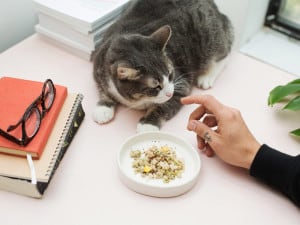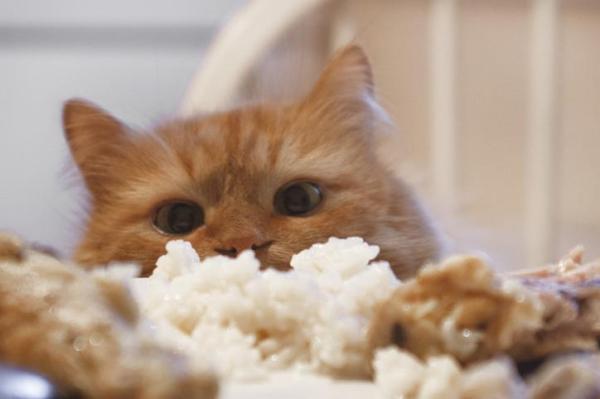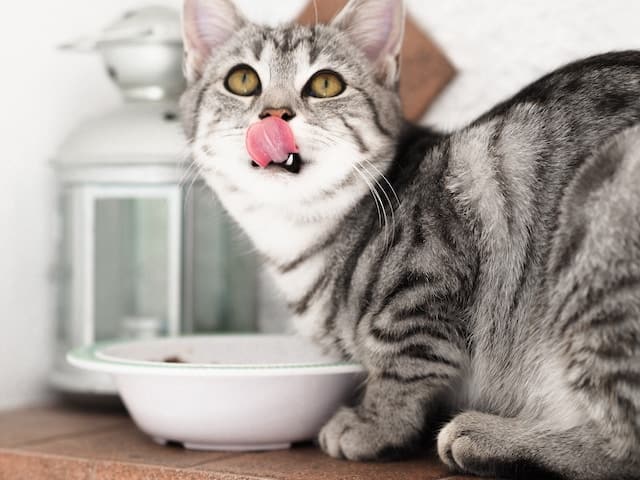
Fiber for Cats – As responsible pet owners, we often seek ways to provide our feline friends with a balanced and nutritious diet. One question that occasionally arises is whether oatmeal, known for its high fiber content, can be a suitable addition to a cat’s diet. While oatmeal may offer some benefits, it’s essential to consider several factors before incorporating it into your cat’s nutrition plan. In this article, we will explore the potential advantages and drawbacks of feeding oatmeal to cats and provide guidance on making informed decisions about their diet.
The Basics of Fiber in a Cat’s Diet
Fiber plays a vital role in the digestive health of both humans and animals, including cats. It aids in maintaining regular bowel movements, preventing constipation, and can help manage weight by promoting a feeling of fullness. However, cats are obligate carnivores, which means their natural diet primarily consists of meat. As such, their digestive systems are not designed to process a significant amount of plant-based foods.
The Pros of Oatmeal for Cats:
- Fiber Content: Oatmeal contains soluble fiber, which can be beneficial for cats with digestive issues such as constipation or diarrhea. It can help regulate bowel movements and provide relief from gastrointestinal discomfort.
- Energy Source: Oatmeal contains carbohydrates that can serve as an energy source for cats, although they primarily derive their energy from protein and fat.
- Weight Management: In small quantities, oatmeal can be used as part of a weight management strategy for overweight or obese cats, as it may help them feel full without consuming excessive calories.
The Cons of Oatmeal for Cats:
- Nutritional Imbalance: Cats require a diet rich in animal-based protein and specific nutrients like taurine, which are not present in sufficient quantities in plant-based foods like oatmeal. Feeding cats a diet too high in plant-based foods can lead to nutritional imbalances.
- Gastrointestinal Upset: While some cats may tolerate oatmeal well, others may experience gastrointestinal upset, including vomiting or diarrhea, when introduced to grains like oatmeal.
- Potential Allergies: Like humans, cats can develop allergies to certain foods. If your cat has never been exposed to oatmeal before, it’s important to monitor for any signs of allergic reactions, such as itching, rashes, or digestive issues.
Guidelines for Feeding Oatmeal to Cats
If you decide to incorporate oatmeal into your cat’s diet, it should be done sparingly and with caution. Here are some guidelines to follow:
- Small Portions: Offer oatmeal in small portions as an occasional treat rather than a regular part of their diet. This minimizes the risk of nutritional imbalances.
- Cooked and Plain: Serve oatmeal cooked and plain, without added sugars, flavorings, or milk. Plain oatmeal is the safest option for cats.
- Monitor for Reactions: Watch for any adverse reactions when introducing oatmeal to your cat. If you notice any signs of digestive upset or allergies, discontinue its use immediately.
- Consult Your Vet: Before making any significant changes to your cat’s diet, consult with your veterinarian. They can provide guidance on whether oatmeal is suitable for your specific cat’s needs and health condition.
The Bottom Line
In summary, oatmeal can offer some benefits in terms of fiber and digestive health for cats, but it should be used sparingly and with caution. The primary focus of a cat’s diet should remain on high-quality, meat-based foods that provide the essential nutrients they require for optimal health. Always consult with your veterinarian before introducing new foods into your cat’s diet to ensure it aligns with their individual health and dietary needs.

Stephanie Ansel is a well-known writer and journalist known for her unique and captivating writing style. She has written many articles and books on important topics such as the lifestyle, environment, hobbies, and technology and has been published in some of the biggest newspapers and magazines. Stephanie is also a friendly and approachable person who loves to talk to people and learn about their stories. Her writing is easy to read and understand, filled with lots of details and information, and is perfect for both kids and adults who want to learn about important topics in an interesting way.





